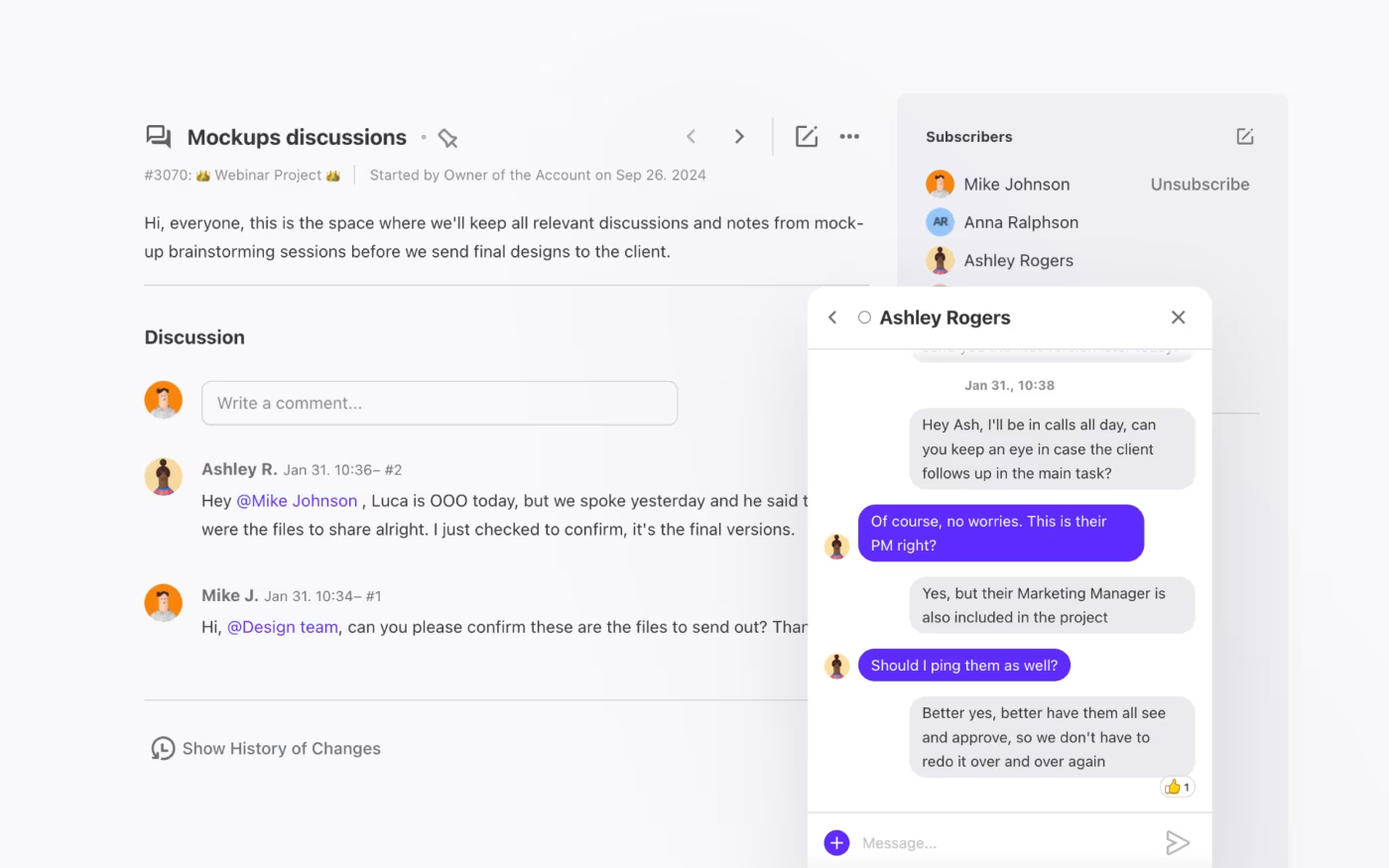Have you heard the phrase: Communication works for those who work at it? It’s a sentence that gives hope to those who are not natural-born communicators.
It tells us that everything will be OK, because communication is a skill that can be learned, practised, and mastered.
But where does one start? At the groundwork, of course. The foundational principles of communication that is. In this article, we take you through the seven absolutely do-nots and the absolute musts of effective team communication, and we tell you how to put the good stuff into practice!
1. Move past autocracy: Let many minds create synergy
If you’ve ever been in a team with an autocratic, bossy-boots leader, you’ll know how much input you or any other team members had in any decision-making process. Probably none.
Autocratic and rigid leadership styles have a top-down flow. The manager gives orders, no questions asked, and the team follows. This approach creates a fear-based organizational culture where employees are discouraged from sharing ideas. Ultimately, the setup leads to disengagement, and an us (employees) against them (leaders) vibe that prevents open communication and negatively impacts organizational culture. In a nutshell, definitely not a way to improve team communication.
How to do democratic leadership for synergic and good team communication
On the other hand, democratic leadership fosters a synchronous communication culture. Here, everyone feels encouraged to contribute and provide feedback, which leads to increased participation and a synergy of ideas. Decision-making is not a one-man job; it requires active listening to all contributions . It’s a group process where open-mindedness leads to more effective communication and faster conflict resolution.
There are several things you can do to establish this free-flowing, effective team communication and culture:
- When you assign tasks, ask for their input, not just delivery
- Lead open discussions that invite honest feedback
- Share and talk about your mistakes so your team will feel free to share their own
- Be honest about challenges, issues, and results
2. One does not fit all: Adapt to communication styles
As people, we’re all unique individuals with different communication styles. While this might initially make it difficult to get on the same page, effective team work actually helps us see things from many different perspectives. This benefits problem-solving and can lead us to more innovative solutions, no matter what type of collaborative piece of work is in question.
Communicating with every person in your team in the same way is not only ineffective, but it can also leave valuable insights and knowledge unnoticed. Some of us are data-focused, others are visionaries, some are process people, and then there are the empaths. Ideally, you want to have all four types within a team because they create the perfect mix that drives impactful results.
How to adapt to the four types of communicators
The first step is to identify who is what and then speak on their terms because this is the language they understand. Check out the table for a breakdown of key traits for each type and your best approach.
Communication Type | Tell-Tale Traits | Best approach |
|---|---|---|
Analytical | Logical, data-oriented, clear thinking & problem solving | Best approach |
| Intuitive | Visionary, big-picture possibilities, innovative & adaptable | Be specific, use charts, reports & facts |
| Functional | Organized, process-minded, methodical & excellent planner | Focus on outcomes, clearly identify purpose & benefits |
| Personal | Emotionally aware, relationship-focused, & conflict fixer | Approach with empathy, create a connection & talk about impact |
3. Be clear, concise, but kind
Sitting in on a conversation where you have to read between the lines and put serious effort into trying to understand what the key message or takeaway is leads to frustration (to say the least).
When you beat around the bush, avoid difficult conversations, and don’t present things as they truly are, you create confusion. As a result, this creates a wave of collaboration and workflow issues. You’ll notice increased stress amongst the team, regular mistakes, and wasted time on tasks.
How to practice clear and transparent team communication
If you want clear and transparent team communication, fostering strong communication is one of the four key practices you can apply.
- Be intentional – Know what you are going to say, and what you want the listener to understand or do.
- Be concise & honest – Avoid vague statements or instructions. Say exactly what the problem is or what you want to see delivered. Provide examples if needed.
- Confirm clarity – Confirm that your listeners understand your message and allow them to ask questions.
- Show care by follow-up – Send a follow-up message or check in with the person or team to make sure they are OK, and on the right path.
4. No blame games: Create a safe-to-speak-up space
Blame games in organizations create toxic workplaces. You’ll recognize these types of workplaces because they are filled with high-school-like cliques, toxic coworkers, finger-pointing, distrust, micromanagement, gossip, and low morale.

This kind of atmosphere doesn’t just bring team communication to a breakdown; it also prevents collaboration, weakens accountability, breeds anxiety, and stalls growth. Do we need to say anything further to convince you why it’s a good idea to get rid of the blame culture?
How to create psychological safety within your team
Psychological safety is about creating an environment where everyone feels safe to speak up about the good and bad things, without fearing they’ll be judged or punished. It’s a place where respect, trust, and a growth mindset rule supreme and create the foundations for healthy, open communication.
Five things help leaders and managers build and maintain this kind of psychological safety:
- Acknowledge honesty – Thank people for speaking up, particularly if the message is different from the mainstream.
- Show humility – Own up to your own mistakes and share learnings from errors.
- Lead by example – Practice open communication daily. You are the example your team follows.
- Encourage diversity – Genuinely ask and request a diversity of ideas and opinions so people who think differently are encouraged to speak up.
- Be respectful & fair – When mistakes are made, openly discuss what went wrong, but be respectful and treat everyone’s errors equally.
5. Don’t ignore subtle cues: Listen, recognize, & align
Communication should never be a one-way street, and it’s never just about the words said. We communicate with our tone and body language. If you’ve ever been on the receiving end of a sarcastic tone or a passive-aggressive manager who avoids eye contact, you’ll know how this impacted the relationship.
Saying the same words in a different tone and with different body language sends two completely different messages. So the idea is to align the three so they all signal to one thing.
How to align and connect in team communication
The secret lies in getting the balance right and using all four communication cues we have at our disposal.
- Words we say – Choose your words carefully and find the right balance between friendly and professional.
- Body language we use – Think relaxed posture, eye contact, nodding, and avoiding distractions like picking up your phone while having a conversation.
- Tone we adopt – You can be confident without being harsh, and encouraging without undermining people’s credibility.
- Empathy we show and express – Recognize and validate feelings to diffuse tension and express understanding.
6. Avoid abrupt reactions: Take time to gather your thoughts
One of the biggest mistakes people make in team communication is in-the-moment reactions. Snapping or responding with your emotions before you have the chance to balance them can lead to long-lasting negative impacts on your team.
No matter how bad the situation is, reacting in the moment can only make things worse. So take time to settle down and gather your thoughts. Giving yourself this pause moment will help you come up with a more effective way to express yourself and provide feedback in a calm and measured way. This will prevent conflicts and lead to stronger relationships.
How to manage negative emotions in team communication
Managing negative emotions in the workplace is not about suppressing them. It’s about channelling them into the right place so you don’t damage the rapport you have with colleagues. But it’s also about finding the right approach to fix the thing that’s triggering you.
There are a few ways to manage these fiery moments:
- Pause & take a breather (literally) – Stop and take five deep breaths to calm your nervous system so your urge to react subsides.
- Step away and analyze – When you get the chance, step away and analyze the situation objectively.
- Identify the trigger – Work out what triggered you and why, and try to understand the other person’s perspective.
- Gather thoughts & communicate – When you are completely calm and have unraveled the situation, gather your thoughts and work out if you need to communicate them to the person or team, minus the negative emotions.
7. Remote is no excuse: Choose the right tool for the conversation
Not being physically present in an office shouldn’t be an excuse for bad communication etiquette. While nothing can replace physical presence, collaboration tools like ActiveCollab communicate effectively with a remote team. If you add to that the possibility of sending your message across in emojis, you can’t deny that these tools come with some fun perks.

However, we need to acknowledge the challenges of remote work communication. In written and virtual settings, there is a lot of room for misinterpretation, especially in relation to tone or intent. If you add to that the delay in responses due to different time zones and minimal opportunity for casual idea exchange, virtual communication also has its downsides.
How to communicate with your team virtually, as humanly as possible
These days, most team collaboration tools offer several communication options. There’s casual chat, video calls, voice messages, and the good old email. The key to effective virtual communication lies in choosing the right one for the type of message you want to share.
Here’s a bit of a guide on which channel to use for what:
- Chat – Instant messaging is best for casual conversations, quick questions, and team updates.
- Email – Official emails are still best for formal team communications and HR-related topics.
- Video call – Video meetings are great for one-on-one or team meetings. They let you build rapport, and some level of tone and body language can be reflected as in in-person conversations.
- Project Management tools – Work management or project management tools are best for communicating task or work-related information. In tools like ActiveCollab, you have an entire history log of communications for each task.
Learn more about types of communication channels and styles at work.
Let ActiveCollab help you communicate better with your team.
To improve and foster effective communication in your team, it all comes down to the culture and habits we cultivate daily. When we get the foundations right and use the seven strategies outlined above, communication becomes easier, whether it be in-person or remote.
For teams that work and communicate virtually, tools like ActiveCollab can help prevent miscommunication and streamline workflows so everyone is in sync and knows what they should be doing.
With in-app chat for casual conversations where you can also create groups, you have a way to communicate instantly with one or more team members, instantly. With in-task comments and discussion options, you can communicate task-specific information, feedback, and instructions so nothing ever gets lost, and you have a history of conversations stored in one place.
On top of that, you also get a dedicated notes section where you can save things like meeting minutes and links to resources or guides needed for particular tasks. The files and folders tab lets you upload and store important documents and videos you need housed with the task itself. For more on how to organize work tasks with a to-do list, check out our comprehensive guide.
ActiveCollab is an all-in-one productivity and collaboration workspace made for service businesses that want to simplify and streamline communications and avoid confusion.
Struggling with your team communications?
It might be time to try ActiveCollab for enhancing your team's communication training. Sign up for our 14-day free trial or book a personalized walkthrough with our head of sales, Filip!





